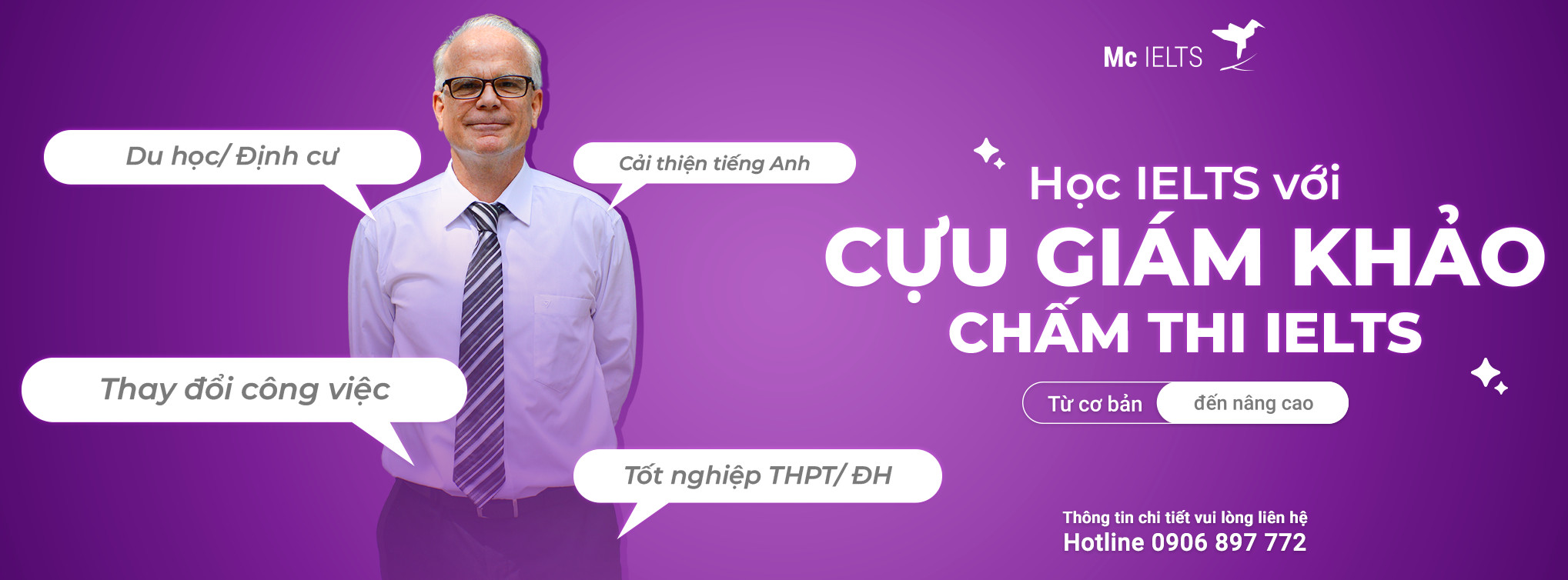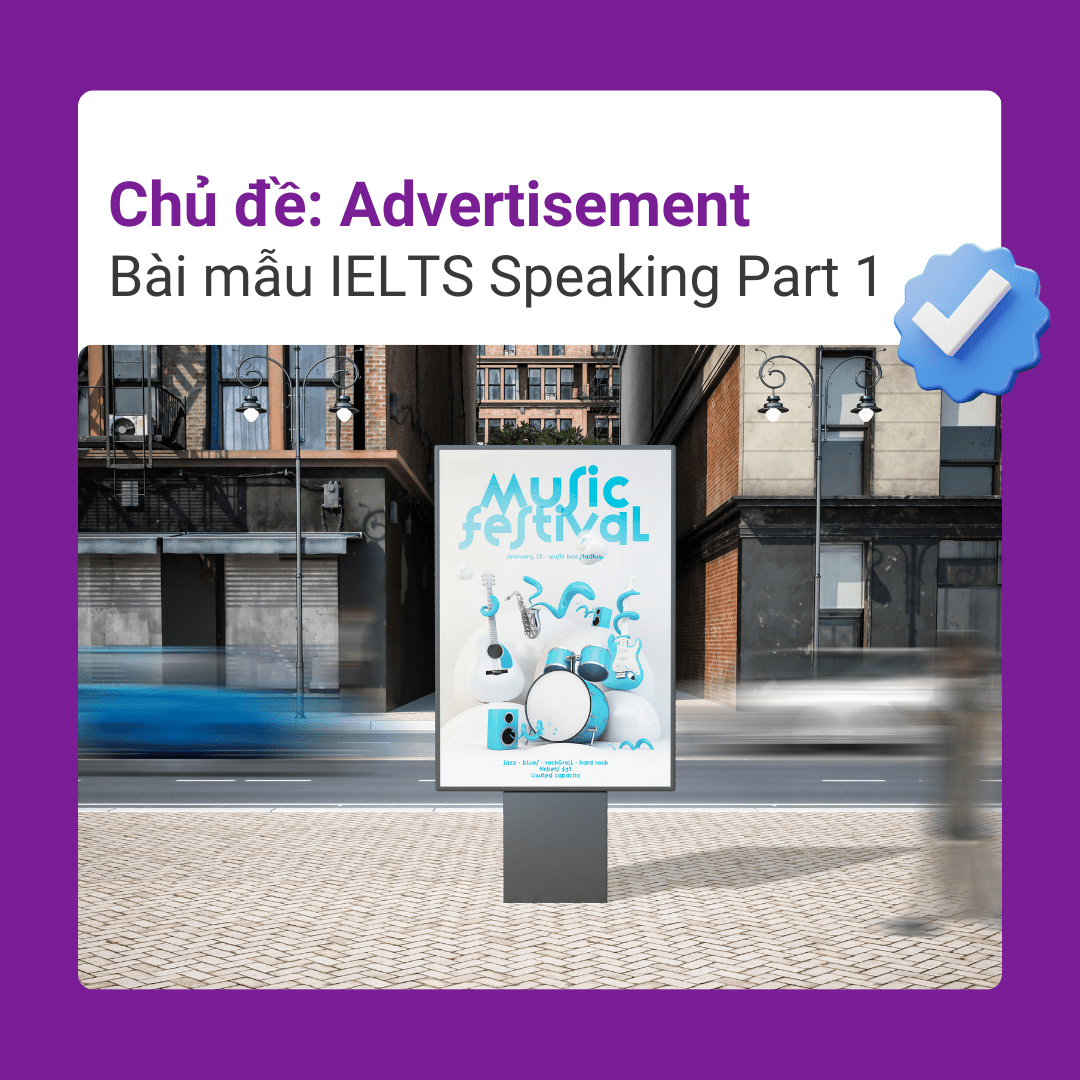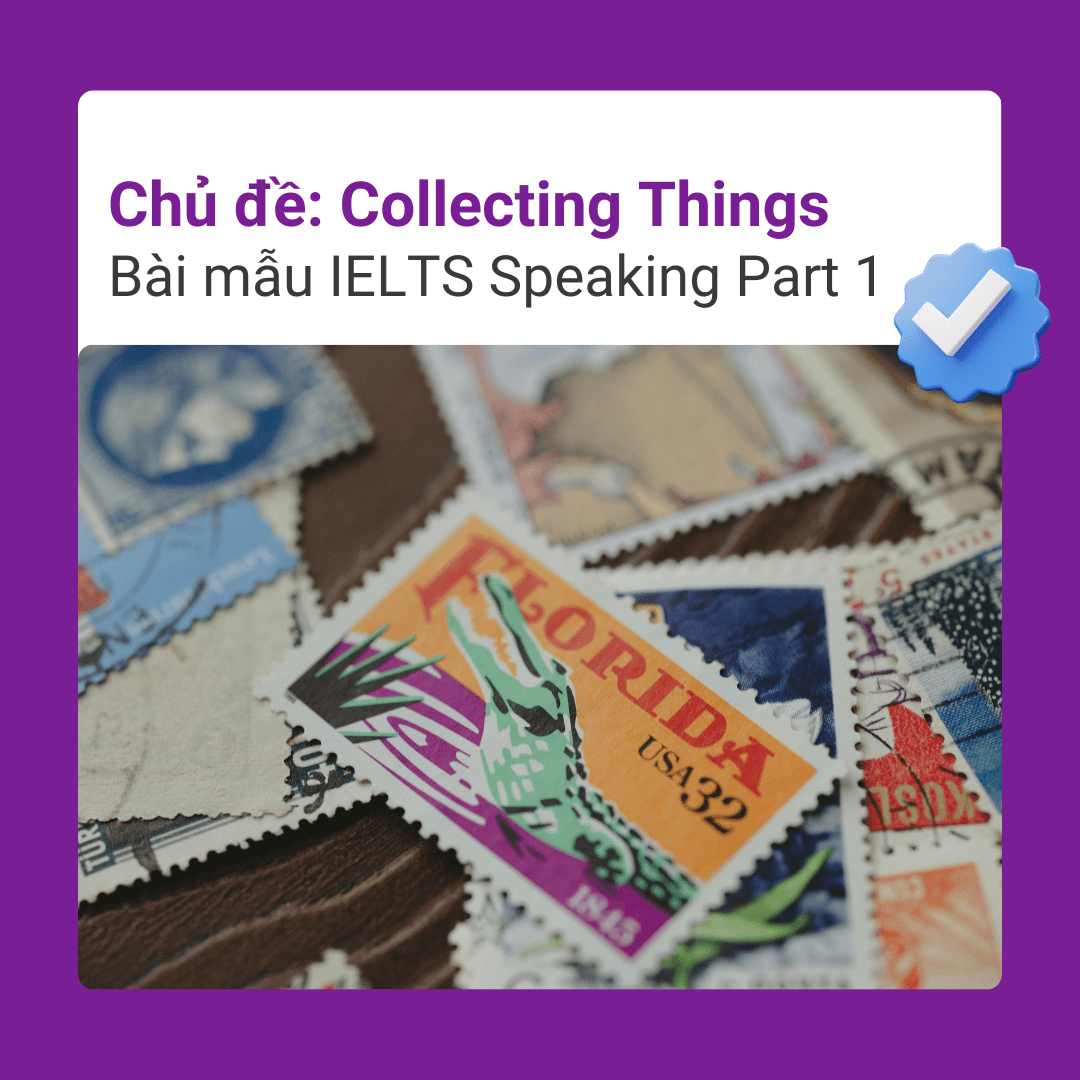IELTS Speaking Part 2 & 3: A Science Field You Want to Learn More About
 22/03/2025
22/03/2025
 Tác giả : Phong Tran
Tác giả : Phong Tran

IELTS Speaking Part 2 & 3: A Science Field You Want to Learn More About
Hướng dẫn trả lời IELTS Speaking Part 2 (Part 2 Answer Guide)
| An area of science (biology, robotics, etc. that you are interested in and would like to learn more about
You should say:
|
Answer 1
I’d like to talk about a fascinating area of science that has always intrigued me: Astrophysics. I first came across astrophysics in a documentary I watched as a teenager, and it was about the mysteries of the universe. This documentary was aired on a science channel and it left a profound impact on me.
Astrophysics is the branch of astronomy that deals with the physics of the universe, including the physical properties of celestial objects. I often gather information about this field through documentaries, scientific journals, and online lectures. The advances in technology and the discoveries of new celestial phenomena keep me glued to this subject.
What really piques my interest in astrophysics is the way it expands our understanding of the universe. The concepts of black holes, dark matter, and the possibility of other dimensions are mind-boggling. It’s this blend of mystery and scientific exploration that drives my curiosity. The idea of exploring the unknown and understanding the vastness and complexity of the universe is truly exhilarating.
Giải nghĩa từ vựng:
Intrigued (Verb)
Định nghĩa: Hứng thú, tò mò.
Example: The mysterious story intrigued him.
Astrophysics (Noun)
Định nghĩa: Thiên văn vật lý.
Example: Astrophysics seeks to understand the universe and our place in it.
Celestial (Adjective)
Định nghĩa: Thuộc về bầu trời, thiên thể.
Example: The night sky is filled with celestial bodies like stars and planets.
Phenomena (Noun)
Định nghĩa: Hiện tượng.
Example: Northern lights are a fascinating natural phenomena.
Piques (Verb)
Định nghĩa: Kích thích, làm tăng sự thích thú.
Example: The mystery novel piques the reader’s curiosity.
Mind–boggling (Adjective)
Định nghĩa: Làm choáng ngợp, không thể tin nổi.
Example: The concept of infinity is mind-boggling.
Exploration (Noun)
Định nghĩa: Sự khám phá, thám hiểm.
Example: The exploration of space has yielded many discoveries.
Exhilarating (Adjective)
Định nghĩa: Sảng khoái, hứng khởi.
Example: Skiing down the slope was an exhilarating experience.
Answer 2
Today, I want to discuss an area of science that has captured my interest: Robotics. My fascination with robotics started during a high school science fair, where I saw a demonstration of a robotic arm. Since then, I’ve been captivated by the potential and advancements in this field.
Robotics is the interdisciplinary branch of science that includes mechanical engineering, electrical engineering, computer science, and others. It involves the design, construction, operation, and use of robots. To stay updated, I follow tech blogs, attend webinars, and participate in online forums where robotics enthusiasts and experts share their knowledge.
My interest in robotics lies in its ability to revolutionize the way we live and work. Robots have the potential to improve efficiency in industries, assist in medical surgeries, and even explore outer space. The innovative aspect of creating machines that can assist, and in some cases, replace human efforts in complex tasks is what makes robotics so enthralling to me.
Giải nghĩa từ vựng:
Captured (Verb)
Định nghĩa: Thu hút, làm say mê.
Example: The beauty of the landscape captured her imagination.
Interdisciplinary (Adjective)
Định nghĩa: Liên ngành.
Example: Robotics is an interdisciplinary field that combines several branches of science.
Enthusiasts (Noun)
Định nghĩa: Người hâm mộ, người say mê.
Example: Car enthusiasts gathered at the auto show.
Revolutionize (Verb)
Định nghĩa: Cách mạng hóa, làm thay đổi lớn.
Example: The invention of the internet revolutionized communication.
Efficiency (Noun)
Định nghĩa: Hiệu quả, hiệu suất.
Example: The new system greatly improved the efficiency of the process.
Innovative (Adjective)
Định nghĩa: Sáng tạo, đổi mới.
Example: Her innovative approach solved the problem.
Enthralling (Adjective)
Định nghĩa: Lôi cuốn, hấp dẫn.
Example: The movie was so enthralling that I forgot the time.
Complex (Adjective)
Định nghĩa: Phức tạp, khó hiểu.
Example: The engineer tackled the complex problem successfully.
Hướng dẫn trả lời IELTS Speaking Part 3 (Part 3 Answer Guide)
Why do some children not like learning science at school?
Answer 1: One reason some children might not enjoy learning science is due to the way it’s often taught. If the teaching methods are too theoretical and lack hands-on activities, kids might find it dull. Science is inherently practical and needs to be experienced to be appreciated. Without engaging experiments or real-life applications, children may fail to see its relevance to their lives. To add more, if the curriculum is not tailored to different learning styles, such as visual or kinesthetic, it can fail to capture the interest of all students. Integrating technology and interactive learning methods can also make science more appealing and understandable to children.
Giải nghĩa từ vựng:
Theoretical (Adjective)
Định nghĩa: Thuộc về lý thuyết, không thực hành.
Example: His understanding of physics was mostly theoretical.
Hands-on (Adjective)
Định nghĩa: Thực hành, tương tác trực tiếp.
Example: The workshop offered hands-on experience in carpentry.
Engaging (Adjective)
Định nghĩa: Hấp dẫn, lôi cuốn.
Example: The teacher made the lessons more engaging with interactive games.
Relevance (Noun)
Định nghĩa: Tính chất liên quan, mức độ liên quan.
Example: They discussed the relevance of classical music in today’s world.
Kinesthetic (Adjective)
Định nghĩa: Liên quan đến học thông qua hoạt động vận động và cảm giác.
Example: Kinesthetic learners benefit from hands-on and movement-based activities.
Answer 2: One important factor could be the complexity of the subject matter. Science often involves complex concepts and a specific vocabulary that can be challenging for some children. If these concepts aren’t introduced gradually and in an age-appropriate manner, students might feel overwhelmed or frustrated, leading to a disinterest in the subject. Furthermore, a lack of relatable context or real-world examples can make science seem abstract and disconnected from everyday life. Creating a connection between scientific concepts and students’ interests or daily experiences can help make science more accessible and enjoyable.
Giải nghĩa từ vựng:
Complexity (Noun)
Định nghĩa: Sự phức tạp.
Example: The complexity of the human brain is fascinating.
Gradually (Adverb)
Định nghĩa: Một cách từ từ, dần dần.
Example: Gradually, he improved his running speed and stamina.
Overwhelmed (Adjective)
Định nghĩa: Bị quá tải, bị áp đảo.
Example: She felt overwhelmed with the amount of work she had to do.
Is it important to study science at school?
Answer 1: Absolutely, studying science at school is crucial. It not only provides foundational knowledge of the world around us but also fosters critical thinking and problem-solving skills. Science education encourages curiosity and inquiry, which are essential for lifelong learning. Moreover, in our increasingly technology-driven world, a basic understanding of scientific principles is vital. Science also helps students develop an appreciation for the natural world and understand the impact of human actions on the environment, fostering a sense of responsibility towards sustainable living.
Giải nghĩa từ vựng:
Foundational (Adjective)
Định nghĩa: Cơ bản, nền tảng.
Example: Foundational math skills are crucial for advanced study.
Foster (Verb)
Định nghĩa: Thúc đẩy, khuyến khích.
Example: The program fosters a love of reading among children.
Curiosity (Noun)
Định nghĩa: Sự tò mò, ham muốn tìm hiểu.
Example: Her curiosity led her to explore new subjects.
Principles (Noun)
Định nghĩa: Nguyên tắc, quy tắc cơ bản.
Example: He was a firm believer in the principles of justice and equality.
Sustainable living (Noun Phrase)
Định nghĩa: Lối sống tiết kiệm tài nguyên và giảm thiểu tác động tiêu cực đến môi trường.
Example: Understanding science is key to promoting sustainable living practices.
Answer 2: Certainly, science education is essential as it equips children with the skills to understand and navigate the modern world. It teaches them about the environment, health, and technology, which are all integral parts of our daily lives. Furthermore, science stimulates innovative thinking, preparing students for future careers in various fields, including those that haven’t been created yet. Science education also lays the groundwork for informed decision-making in personal and public life, such as understanding health information, environmental issues, and technological advancements.
Giải nghĩa từ vựng:
Equip (Verb)
Định nghĩa: Trang bị, cung cấp những kiến thức hoặc kỹ năng cần thiết.
Example: The course equips students with the skills necessary for a career in engineering.
Integral (Adjective)
Định nghĩa: Cần thiết, không thể thiếu.
Example: Regular exercise is an integral part of maintaining good health.
Stimulate (Verb)
Định nghĩa: Kích thích, thúc đẩy.
Example: The debate stimulates critical thinking among the students.
Innovative (Adjective)
Định nghĩa: Mang tính sáng tạo, mới lạ.
Example: The company is known for its innovative approach to design.
Groundwork (Noun)
Định nghĩa: Cơ sở, nền tảng ban đầu cho một công việc hoặc quá trình.
Example: A solid science education lays the groundwork for advanced learning and problem-solving.
Which science subject is the most important for children to learn?
Answer 1: It’s challenging to pinpoint one science subject as the most important since each offers unique insights. Biology is exceptionally relevant as it deals with life processes and living organisms, including humans. Understanding biology helps children grasp their own bodies, the environment, and the interdependence of all living things. Equally important, however, are subjects like physics, which teaches fundamental principles of matter and energy, and chemistry, which explores the composition of substances. Each branch of science contributes to a well-rounded understanding of the natural world.
Giải nghĩa từ vựng:
Pinpoint (Verb)
Định nghĩa: Xác định chính xác, chỉ rõ.
Example: It was difficult to pinpoint the source of the problem.
Biology (Noun)
Định nghĩa: Sinh học, khoa học về sự sống.
Example: She developed a fascination for biology during her school years.
Comprehend (Verb)
Định nghĩa: Hiểu, nhận thức được.
Example: The students struggled to comprehend complex mathematical theories.
Interdependence (Noun)
Định nghĩa: Sự phụ thuộc lẫn nhau, sự tương tác qua lại.
Example: The documentary highlighted the interdependence of plants and animals in the ecosystem.
Answer 2: Considering our current global challenges, environmental science is becoming increasingly important. It educates children about climate change, conservation, and sustainable living practices. In an era where environmental issues are critical, having a strong grasp of environmental science empowers the next generation to make informed decisions and contribute to solutions. Additionally, other fields like astronomy and earth science are also important, as they expand our understanding of the planet we inhabit and our place in the universe.
Giải nghĩa từ vựng:
Environmental science (Noun)
Định nghĩa: Khoa học môi trường, nghiên cứu về tác động của con người lên môi trường tự nhiên.
Example: Environmental science classes teach students about the importance of recycling and conservation.
Climate change (Noun Phrase)
Định nghĩa: Sự thay đổi khí hậu, biến đổi khí hậu do tác động của con người và các yếu tố tự nhiên.
Example: Climate change is a pressing issue that affects global weather patterns.
Conservation (Noun)
Định nghĩa: Sự bảo tồn, giữ gìn tài nguyên tự nhiên.
Example: Wildlife conservation efforts help protect endangered species.
Sustainable (Adjective)
Định nghĩa: Bền vững, có thể duy trì được lâu dài mà không gây hại cho môi trường.
Example: Sustainable farming practices are essential for food security in the future.
Astronomy (Noun)
Định nghĩa: Khoa học về vũ trụ, bao gồm các ngôi sao, hành tinh và các hiện tượng vũ trụ.
Example: Astronomy fascinates many children with its exploration of galaxies and stars.
Earth science (Noun)
Định nghĩa: Khoa học nghiên cứu về Trái Đất và các quá trình tự nhiên của nó.
Example: Earth science teaches us about the processes that shape our planet.
Should people continue to study science after graduating from school?
Answer 1: Absolutely, continuing to study science after school is beneficial for personal growth and societal development. Keeping up with scientific progress in a rapidly advancing world helps individuals make informed decisions in various aspects of life. Lifelong learning in science cultivates a culture of innovation and critical thinking. Beyond personal benefits, ongoing science education contributes to a society’s ability to address complex global issues, from healthcare to environmental sustainability.
Giải nghĩa từ vựng:
Beneficial (Adjective)
Định nghĩa: Có lợi, mang lại lợi ích.
Example: Eating a balanced diet is beneficial for your health.
Advancing (Adjective)
Định nghĩa: Tiến bộ, phát triển.
Example: Advancing technology has made our lives more convenient.
Innovation (Noun)
Định nghĩa: Sự đổi mới, sáng tạo.
Example: The company is always looking for new innovation to stay competitive.
Critical thinking (Noun Phrase)
Định nghĩa: Tư duy phản biện, khả năng phân tích và đánh giá một cách logic.
Example: Critical thinking skills are important in problem-solving.
Answer 2: Indeed, studying science post-graduation is essential for those in science-related fields, as it enables them to stay updated with the latest research and advancements. For non-scientists, ongoing science education enhances scientific literacy, vital for understanding and participating in discussions about societal issues. It also fosters a sense of wonder and a deeper appreciation for the world around us, encouraging continuous personal and intellectual growth.
Giải nghĩa từ vựng:
Professional development (Noun Phrase)
Định nghĩa: Sự phát triển nghề nghiệp, việc học hỏi và phát triển kỹ năng nghề nghiệp.
Example: Attending conferences is a great way for professional development.
Abreast (Adverb)
Định nghĩa: Cập nhật, theo kịp.
Example: It’s important to stay abreast of industry changes.
Scientific literacy (Noun Phrase)
Định nghĩa: Khả năng hiểu và áp dụng kiến thức khoa học vào cuộc sống.
Example: Scientific literacy is crucial for making informed decisions about health and the environment.
Intellectual growth (Noun Phrase)
Định nghĩa: Sự phát triển trí tuệ, tăng cường kiến thức và hiểu biết.
Example: Intellectual growth is an ongoing process that benefits from continuous learning.
How do you get to know about scientific news?
Answer 1: I usually stay updated with scientific news through various online platforms. Websites like ScienceDaily or National Geographic offer a wealth of information on the latest discoveries and research. Additionally, following relevant scientific journals and subscribing to newsletters from reputable institutions keeps me informed about new developments in the field of science. Social media can also be a valuable source when following science news, as many scientists and research organizations share updates on their latest work. However, it’s important to ensure the credibility of the sources to avoid misinformation.
Giải nghĩa từ vựng:
Platform (Noun)
Định nghĩa: Nền tảng, phương tiện truyền thông hoặc công nghệ.
Example: Social media platforms are a popular way to stay connected with friends and family.
Discovery (Noun)
Định nghĩa: Phát kiến, sự khám phá mới.
Example: The discoveries in space exploration have expanded our understanding of the universe.
Reputable (Adjective)
Định nghĩa: Có uy tín, được nhiều người tin tưởng.
Example: She graduated from a reputable university.
Misinformation (Noun)
Định nghĩa: Thông tin sai lệch hoặc không chính xác.
Example: The internet can sometimes spread misinformation about scientific topics.
Credibility (Noun)
Định nghĩa: Tính xác thực, đáng tin cậy.
Example: Ensuring the credibility of sources is vital when researching scientific topics.
Answer 2: I find that podcasts and science-focused TV programs are fantastic ways to learn about scientific news. Many experts and scientists host or feature in these mediums, providing insights in an accessible and often entertaining format. It’s a great way to gain knowledge while commuting or during leisure time. Attending public lectures or science events can also be an enriching way to stay informed about scientific advancements. Moreover, reading science magazines and books written for the general public can offer deep dives into specific topics of interest.
Giải nghĩa từ vựng:
Science-focused (Adjective)
Định nghĩa: Tập trung vào khoa học; chủ yếu quan tâm hoặc liên quan đến các vấn đề khoa học.
Example: The university offers a science-focused curriculum that is ideal for aspiring researchers.
Medium (Noun)
Định nghĩa: Phương tiện hay cách thức để truyền đạt thông tin, nghệ thuật, hoặc giải trí; vật chất hoặc môi trường mà qua đó một hiện tượng tồn tại hoặc được truyền tải.
Example: Oil paint is a popular medium for artists because of its rich colors and versatility.
Format (Noun)
Định nghĩa: Cách thức tổ chức hoặc sắp xếp thông tin, tài liệu, hoặc chương trình; kích thước, hình thức, hoặc cấu trúc tổng thể.
Example: The magazine decided to change its format to attract a younger audience.
Public lecture (Noun Phrase)
Định nghĩa: Các bài giảng hoặc thuyết trình công khai cho khán giả rộng rãi.
Example: Public lectures by scientists are a great way to learn about new research.
Enriching (Adjective)
Định nghĩa: Làm phong phú thêm, tăng cường giá trị hoặc chất lượng.
Example: Enriching experiences like attending science events can broaden one’s understanding.
Should scientists explain the research process to the public?
Answer 1: Certainly, scientists should make an effort to explain their research process to the public. This transparency builds trust and helps laypeople understand the significance of scientific work. Moreover, explaining research in layman’s terms can inspire public interest in science and demystify complex concepts, making science more approachable and less intimidating for the general public. Effective science communication can also bridge the gap between scientific communities and the public, promoting a more informed and scientifically literate society.
Giải nghĩa từ vựng:
Transparency (Noun)
Định nghĩa: Sự minh bạch, rõ ràng.
Example: The organization is known for its transparency in financial dealings.
Laypeople (Noun)
Định nghĩa: Người ngoài ngành, người không chuyên.
Example: The book is written in a way that’s easily understood by laypeople.
Demystify (Verb)
Định nghĩa: Làm sáng tỏ, giải bày.
Example: The documentary aims to demystify the process of filmmaking.
Approachable (Adjective)
Định nghĩa: Dễ tiếp cận, dễ gần.
Example: The teacher was very approachable and always willing to help students.
Scientifically literate (Adjective)
Định nghĩa: Có kiến thức và hiểu biết cơ bản về khoa học.
Example: A scientifically literate population can make more informed decisions about health and the environment.
Answer 2: Yes, scientists should definitely communicate their research process to the public. This communication not only fosters a greater appreciation for scientific inquiry but also encourages public engagement in science-related issues. When scientists share their methodologies and findings, it helps debunk myths and misinformation, contributing to a more scientifically informed society. Clear and accessible science communication can also inspire younger generations to pursue careers in science and contribute to the field’s future growth.
Giải nghĩa từ vựng:
Communication (Noun)
Định nghĩa: Sự giao tiếp, trao đổi thông tin.
Example: Effective communication is key in any team project.
Appreciation (Noun)
Định nghĩa: Sự đánh giá cao, lòng biết ơn.
Example: She had a deep appreciation for the arts.
Engagement (Noun)
Định nghĩa: Sự tham gia, sự gắn kết.
Example: The campaign aimed at increasing public engagement in environmental conservation.
Debunk (Verb)
Định nghĩa: Bóc mẽ, làm sáng tỏ sự thật.
Example: The scientist worked to debunk popular myths about climate change.
Tự tin chinh phục chủ đề “A Science Field You Want to Learn More About”

Học IELTS cùng Cựu giám khảo www.mcielts.com
Khi đăng ký học IELTS ở trung tâm Mc IELTS, bạn sẽ được hưởng những quyền lợi tuyệt vời:
- Tặng thêm 6 buổi học 1-1 hàng tuần với cố vấn học tập: Để bạn có thể giải đáp mọi thắc mắc và tăng cường luyện tập cá nhân.
- Học lại MIỄN PHÍ nếu không đạt điểm lên lớp: Bạn không cần lo lắng về chi phí khi phải học lại.
- Tham gia nhóm trao đổi Online trên Facebook: Với sự tham gia của cựu giám khảo IELTS, bạn sẽ nhận được những lời khuyên quý báu và phản hồi chi tiết.
- Kho tài liệu IELTS Online phong phú: Hơn 50 đầu sách đa dạng và bổ ích giúp bạn tự học hiệu quả.
- Hỗ trợ học bù và bảo lưu trong quá trình học: Đảm bảo bạn không bỏ lỡ bất kỳ bài học quan trọng nào.
Chất lượng giảng dạy tại Mc IELTS đã được khẳng định qua hơn 1000 đánh giá xuất sắc từ học viên:
- Đánh giá 4.9/5.0 trên Facebook, xem chi tiết tại đây.
- Đánh giá 4.9/5.0 trên Google, xem chi tiết tại đây.
- Đánh giá 9.2/10 trên Edu2review, xem chi tiết tại đây.

Những con số biết nói
Đặc biệt, Mc IELTS còn cung cấp dịch vụ sửa bài miễn phí Writing và Speaking trong nhóm Facebook với sự tham gia của cựu giám khảo IELTS. Đây là cơ hội tuyệt vời để bạn nhận được những phản hồi chi tiết và cải thiện kỹ năng của mình một cách hiệu quả. Tham gia nhóm tại đây.

Tham gia nhóm Facebook của Mc IELTS để được cựu giám khảo chấm chữa bài Speaking và Writing hoàn toàn miễn phí
Qua những câu trả lời mẫu và từ vựng chi tiết trong bài viết này, Mc IELTS hy vọng rằng bạn đã có thêm kiến thức và sự tự tin để đối mặt với chủ đề A Science Field You Want to Learn More About trong phần thi IELTS Speaking Part 2&3.
Để đạt kết quả tốt nhất trong phần thi Speaking, hãy tham gia các khóa học tại Mc IELTS. Với đội ngũ giảng viên là những cựu giám khảo chấm thi IELTS, Mc IELTS sẽ giúp bạn nâng cao kỹ năng và tự tin chinh phục kỳ thi IELTS. ĐĂNG KÝ NGAY hôm nay để nhận được sự hỗ trợ tốt nhất và chuẩn bị vững chắc cho kỳ thi của bạn.
Nhận lộ trình IELTS TỐI ƯU theo yêu cầu
















